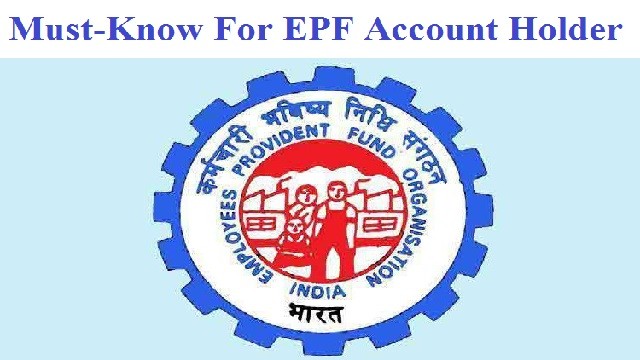Major changes are going to happen in the country from April 1, 2021 for crores of employees. Actually, a new rule related to PF is going to come into force on this day. This rule will affect those who have higher income and more contribution to EPF account.
Finance Minister Nirmala Sitharaman had announced in the budget this time that people whose annual contribution to PF is more than 2.5 lakh rupees. He will fall outside the purview of tax rebate on the interest received.
The government claims that less than 1 per cent of the employees will be affected by the implementation of the new rule. Expenditure Secretary T.V. Somanathan says that employees who are contributing more than 2.5 lakhs their number is less than one percent of the total contributors. The number of shareholders of EPFO is 60 million. The motive behind the new rules of the Employees Provident Fund Organization is to emerge from the government’s revenue deficit.
Employees whose annual income is more than Rs 20.83 lakh will be affected more by this decision of the government. However, after the implementation of this new rule, there can be a decrease in the number of depositors, because people invest in PF account due to higher interest and income tax exemption.
How to check KYC in EPF account?
There are 3 ways to verify whether your EPF account is KYC approved or not.
First by verifying your UAN card: UAN stands for Universal Account Number. Via UAN Card Visit Member e-Seva Portal and login to your account. Now under the ‘View’ menu, click on ‘UAN Card’ option. UAN Card will indicate ‘Yes’ if there is a KYC in your EPF account.
The EPF was a social benefit scheme introduced for which both employees and employers contribute 12 percent of the basic salary and dearness allowance. In the Union Budget 2021 announced by the Finance Minister, a new tax limit has been placed. And for contribution to PF Rs. 2.5 lakhs in a year, interest on it will now have tax implications.
The government is already facing revenue shortages and has a big role to play in uplifting the overall economy. Amidst its repetition, according to Cleartax founder and CEO Archit Gupta, “Paying tax-free interest on provident funds becomes more and more volatile. The government curbs high-income people who contribute more to their PF accounts.”
How will we be affected by this step?
Generally, the high-income earners have an annual income of Rs 20.83 will be hit massively per year. What should be noted here is that for the said tax implications only the contribution of the employee and not the component of the employer is taken into consideration.
Interest in EPF is currently exempt from tax implications. Therefore, the new rulers will either earn a good salary or contribute more to the fund according to the salaried class, taking out the tax implications on the interest component (if the employee’s contribution exceeds Rs 2.5 lakh in a year).
Those who make major contributions to the EPF account will also be affected. The finance minister said, “The big-ticket money that comes into the fund and the 8% return along with the tax benefit is also mentioned. Thus the move focuses on the big tax-free interest which is on the withdrawal. There was no tax.
Formal job creation took place in December with 1.25 million workers, added to the Employees Provident Fund Organization, an increase of 24% compared to December 2019 while 1.20 million employees were added under the State Insurance Corporation, the highest in the financial year. The formal job creation date in December, which confirms with an increase in economic activity, could be on the back of government-fired job creation incentives last year and reduced job numbers.
(Source: naidunia.com)




 Kalinga AI
Kalinga AI
Sir please job
IFC=BDBL0001459
A/C=52160041967875
BANDHAN bank